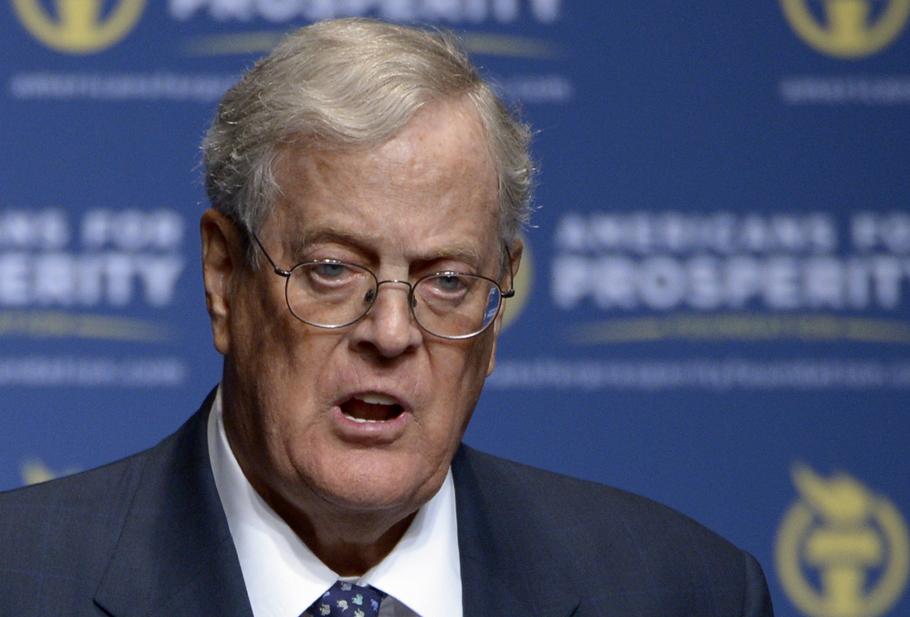

It has come to this: Public transportation is a socialist plot. The oil billionaires Charles and David Koch, not content with pushing the United States out of the Paris climate accords or undermining the Affordable Care Act, have trained their sites on local transit projects, from Phoenix to Nashville. Through their front group Americans for Prosperity, they are bankrolling campaigns to kill proposals for light rail or new bus routes, in part because government-controlled transportation runs counter to their deregulatory “freedom agenda.’’
In a revelatory New York Times article, a spokeswoman for Americans for Prosperity argued that, in addition to wasting taxpayer dollars, bus and subway systems infringe on the car-centric liberties that Americans cherish. “If someone has the freedom to go where they want,’’ she said, “they’re not going to choose public transit.’’
After all, mass transit means transit for the masses. Why do you think they call it the Red Line?
It’s tempting to mock such a baldly ideological attack on public transportation — as if sitting in a three-mile backup on Route 93 is anyone’s definition of freedom! – except that the Koch-funded campaigns are often successful. In fast-growing Nashville, Americans for Prosperity launched an ad blitz against a $5.4 billion light-rail proposal that was heavily favored in the polls. Among other tactics, the campaign enlisted leaders in Nashville’s black community with the argument that light rail would gentrify neighborhoods, pushing lower-income residents out of their homes. Other factors contributed, but Americans for Prosperity exulted when the ballot proposal lost by 28 points in May.
Koch-financed campaigns against mass transit have also shown some success over the years in Atlanta, Indiana, and in Congress, where the 18.4-cent federal gasoline tax — source of funding for road and bridge repairs as well as public transportation — has not been increased since 1997. Today, spending on highways dwarfs spending on transit at all levels of government; at the state and federal level the ratio is more than four highway dollars for every dollar spent on public transportation.
Anti-government forces already have succeeded in privatizing schools, parks, hospitals, and other public institutions, and mass transit is being eroded by corporate employee shuttles and disrupters such as Uber and Lyft, which do little to reduce congestion or pollution. It is no surprise that spending money on someone else’s commute might rankle free-market conservatives, but people who depend on public transit to get to work are part of the economy too. We need their talents and services to keep the engine humming.
The willingness of big money interests to attack local transit proposals should be a warning to Massachusetts. Now that the so-called millionaires tax surcharge has been ruled out of play, many are hoping that regional transit initiatives can supply some of the revenue the tax would have raised. Legislation to allow separate communities to form a district for the purpose of placing local taxes on the ballot is backed by most planning and transportation advocates. It would offer more autonomy to cities and towns who now must beg the Legislature for the right to raise their own revenues. But it could create an uneven patchwork of transit solutions, with more prosperous communities approving their measures and others, such as the Gateway cities, unable to raise the needed funds.
Massachusetts is desperate for new ways to improve urban and regional transit. But ballot initiatives still allow state legislators to shirk their responsibility and punt difficult decisions about raising money to the voters. And they open local communities to costly, divisive ballot campaigns every time they need to fund a new bus route. The 38 state chapters of Americans for Prosperity have shown they are willing to scorch the earth to stop popular transportation projects that shouldn’t be partisan at all. Massachusetts doesn’t have a chapter — yet.
Renée Loth’s column appears regularly in the Globe.



